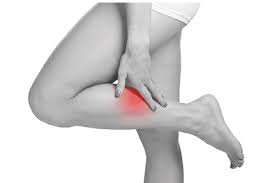Muscle pain, medically referred to as myalgia, is a common complaint that many individuals experience at some point in their lives. It can range from mild discomfort to debilitating agony, impacting daily activities and overall quality of life. But when does muscle pain signify a more serious underlying condition? In this comprehensive guide, we delve into the various causes of muscle pain, explore when it might indicate a serious issue, and provide insights into effective management strategies.
Carisol 350mg is the main ingredient. Its powerful formulation, which includes the active ingredient carisoprodol, addresses the underlying causes of pain and provides a comprehensive solution for people looking for relief from a variety of low back pain issues. It provides relief from the discomfort associated with acute, painful musculoskeletal conditions such as rigidity, tension, stiffness, and muscle spasms.
What Causes Muscle Pain?
Muscle Overuse and Strain: One of the most common causes of muscle pain is overexertion or strain. Engaging in strenuous physical activities or repetitive movements can lead to microscopic damage to muscle fibers, resulting in soreness and discomfort. This type of pain is often temporary and can be alleviated with rest and gentle stretching.
Injury or Trauma: Muscle injuries, such as strains or tears, can occur due to sudden impacts, falls, or accidents. These injuries typically manifest as sharp, localized pain and may be accompanied by swelling and bruising. Depending on the severity of the injury, medical intervention may be necessary to promote healing and prevent complications.
Prosoma 500mg is a skeletal muscle relaxant usually used for treating pains associated with injury or other conditions. Prosoma 500mg is the brand name for carisoprodol. Prosoma 500 is available in strength of 500 mg of Carisoprodol. It relieves the pain and suffering of acute, unpleasant musculoskeletal problems such as rigidity, tension, stiffness, and muscular spasms
Muscle Tension and Stress: Emotional stress and tension can manifest physically in the form of muscle tightness and pain. Prolonged periods of stress can cause muscles to contract involuntarily, leading to chronic discomfort in areas such as the neck, shoulders, and back. Relaxation techniques, such as deep breathing exercises and massage therapy, can help alleviate tension-related muscle pain.
Medical Conditions: Certain medical conditions can contribute to muscle pain as a symptom. These may include:
- Fibromyalgia: A chronic disorder characterized by widespread musculoskeletal pain, fatigue, and tender points throughout the body.
- Lupus: An autoimmune disease that can cause inflammation and pain in the muscles and joints.
- Rheumatoid Arthritis: An autoimmune condition that affects the joints, causing pain, swelling, and stiffness, which can also affect muscles.
- Infections: Viral infections, such as influenza or the common cold, can cause muscle aches and soreness as part of the body’s immune response.
When to Worry About Muscle Pain
While most cases of muscle pain are benign and resolve with time and conservative measures, there are certain red flags that warrant medical attention. These may include:
- Severe or Persistent Pain: If muscle pain is severe, worsening over time, or not improving with rest and home remedies, it could indicate a more serious underlying issue.
- Accompanying Symptoms: Muscle pain accompanied by symptoms such as fever, swelling, weakness, or numbness warrants prompt evaluation by a healthcare professional.
- Recent Trauma or Injury: If muscle pain follows a recent traumatic event or injury, it’s essential to rule out fractures, sprains, or other serious musculoskeletal injuries.
- Underlying Medical Conditions: Individuals with pre-existing medical conditions, such as diabetes, heart disease, or cancer, should be vigilant about any new or worsening muscle pain, as it may be indicative of disease progression or complications.
Managing Muscle Pain
Effective management of muscle pain involves a combination of self-care strategies, medical interventions, and lifestyle modifications. Some tips for managing muscle pain include:
- Rest and Recovery: Allow affected muscles time to rest and recuperate by avoiding activities that exacerbate pain or strain.
- Heat and Cold Therapy: Applying heat packs or cold compresses to sore muscles can help alleviate pain and inflammation.
- Over-the-Counter Pain Relievers: Nonsteroidal anti-inflammatory drugs (NSAIDs), such as ibuprofen or acetaminophen, can provide temporary relief from muscle pain and discomfort.
- Physical Therapy: Working with a physical therapist can help improve flexibility, strength, and range of motion while reducing pain and preventing future injuries.
- Stress Management: Incorporating stress-reduction techniques such as mindfulness meditation, yoga, or tai chi can help alleviate tension-related muscle pain.
- Hydration and Nutrition: Staying hydrated and maintaining a balanced diet rich in vitamins, minerals, and protein supports overall muscle health and recovery.
Conclusion
Muscle pain is a common ailment that can arise from various causes, including overuse, injury, tension, and underlying medical conditions. While most cases of muscle pain are self-limiting and benign, it’s essential to recognize when it may signal a more serious problem. By understanding the potential causes and knowing when to seek medical attention, individuals can effectively manage muscle pain and improve their overall well-being.



